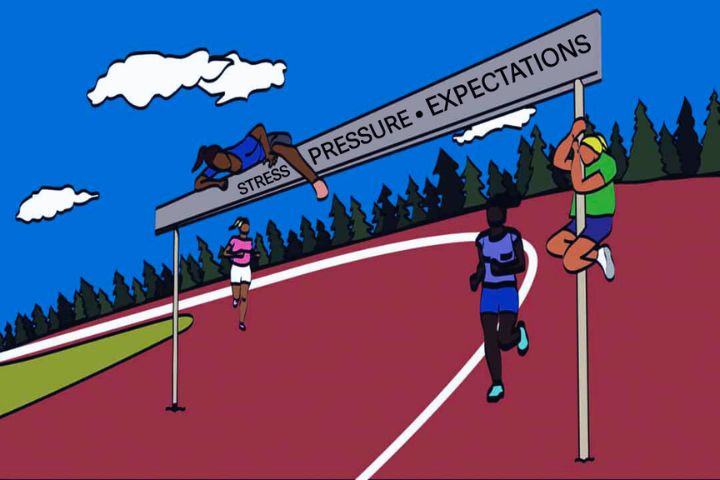-
Table of Contents
Introduction: The Connection Between Mind and Body (200 words)
Physical strength and e’s capability, endurance, and overall performance. Understanding the deep-seated link between mind and skill aren’t the only factors that affect athlete performance. Mental health profoundly impacts an athletbody is vital for athletes of all levels.
-
The Role of Stress and Anxiety
For athletes, stress can be a double-edged sword. A little can boost performance, sharpening focus. However, chronic stress or anxiety can hinder performance. It might manifest as constant self-doubt, fear of failure, or even physical symptoms like fatigue. According to research, undue stress can even alter an athlete’s physiological responses, making recovery post-exercise slower.
-
The Importance of Mental Stamina
It is possible to train and refine mental stamina, just as physically you can. In high-pressure situations, mental resilience allows athletes to push through barriers, overcome obstacles, and maintain focus. When you’re facing a challenging race or game at the end, it can mean the difference between giving up or pushing through.
-
Depression and Performance
The clinical condition of depression is more than just sadness; it can significantly affect athletes’ performance, training, and focus. It is crucial to recognize the signs and seek help. Depression can result from a variety of factors, including performance pressures, personal challenges, or injuries.
-
Role of Sleep and Recovery
Adequate sleep impacts mood, decision-making, and even muscle recovery. A rested mind is a sharp mind. Adequate sleep is vital for mental health and, therefore, for peak athletic performance. Tools and tips can be found in many resources, including payment options on black Friday that provide options for those seeking to optimize their rest to better performance.
-
Meditation and Mindfulness in Sports
Now that meditation and mindfulness are widely recognized as powerful tools, athletes can use them to stay present and reduce overthinking. Meditation has been proven to improve focus and clarity on the field, improving performance significantly. It has been proven that meditation is transformative and can improve performance significantly. Many elite athletes meditate every day, proving its transformative qualities. It is simple, affordable, and does not require any special equipment to practice mediation.
-
The Value of Professional Counseling
The goal of mental coaching is not only to help those with issues; it is also to prevent mental health issues from developing. Counselors can offer strategies to cope with pressure, deal with performance anxiety, and establish realistic expectations. They provide a safe space for athletes to discuss their fears, aspirations, and challenges in a supportive environment. Love Discount Vouchers is one platform that offers discount codes, information, and insight to those interested in this path.
-
Nutrition: Fuel for the Body and Mind
A diet’s impact on mental well-being is not limited to physical health. Nutrient deficiencies can result in mood swings, fatigue, and general malaise that can negatively affect athletes’ performance. For instance, omega-3 fatty acids support brain health, and foods rich in antioxidants fight oxidative stress, improving mental clarity. The marriage of mental and physical strength optimizes both. Those interested in optimizing their diet can find a wide variety of resources online. Some platforms are even offering discount codes to make healthy eating more affordable.
-
Conclusion: Balancing the Scales
Therefore, mental health and athletic performance are intertwined. Neglecting one impacts the other invariably. In a world where competition is fierce, understanding and prioritizing mental well-being becomes increasingly important. It is imperative that all athletes, trainers, and all those involved in sport recognize mental distress and take proactive measures.
In summary, mental health and athletic prowess are intertwined fields that require constant attention. As the debate over mental health continues to evolve, we must prioritize it alongside physical activity.
